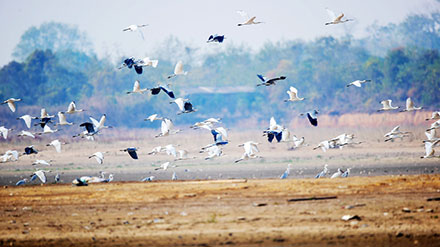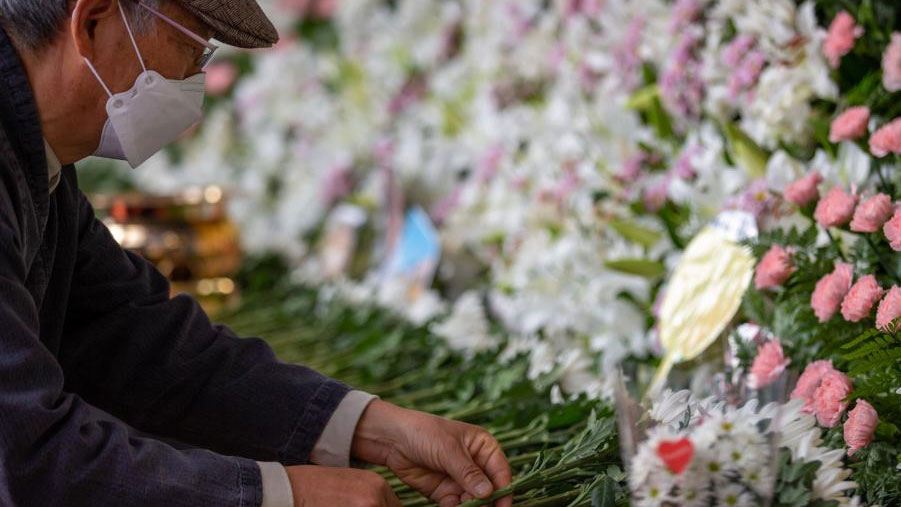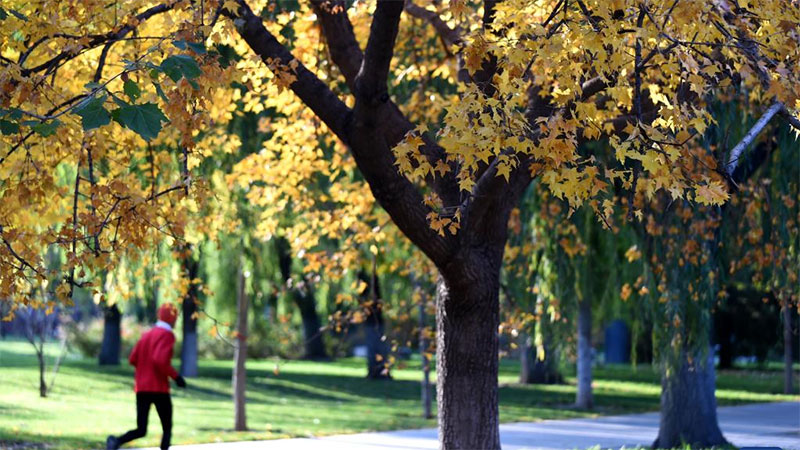Feature: Nigerian village lit up with solar-power light systems donated by Chinese firm
KANO, Nigeria, Nov. 6 (Xinhua) -- Shuaib Ibrahim held tight the light switch in his right hand. Slightly stiff body movements exposed his nervousness in front of cameras and audience.
However, as his thumb pressed the switch and the bright light instantly lit up the once-dim room, he seemed to be relaxed a little. After a quick glance at everyone in the room, a reserved smile appeared on his face.
"I am very thankful for this gift... I was born here and I grew up here. Before now, we did not have any form of power," said the 48-year-old Ibrahim in an interview Xinhua during a handing-over ceremony, in which PowerChina, a state-owned hydropower and civil engineering construction giant in China, donated on Saturday over 500 set of solar-power light systems to the Lauteye village in Bunkure local government area of Kano state, north Nigeria.
The donation will end the long history of relying only on charcoal fires or kerosene lamps for nighttime lighting in the village. Ibrahim and more than 300 other families in the village from now on have a clean, sustainable and almost no cost light for nighttime.
Tian Yuan, chief representative of PowerChina in Nigeria, told Xinhua the donation aims to implement the "100 Companies in 1,000 Villages" campaign initiated by the Alliance of Chinese Business in Africa for Social Responsibilities.
PowerChina's donation of solar power lighting equipment will, to a great extent, improve the quality of life of the villagers, Tian said.
He said the "100 Companies in 1000 Villages" is also a campaign to implement the "Nine programs" announced by China at the 8th Ministerial Conference of the Forum on China-Africa Cooperation. It will mobilize at least 100 Chinese enterprises in Africa to participate in the implementation of at least 1,000 aid projects to benefit African people in the next few years, promoting sustainable development of economy, society and environment in the continent.
AbdulRauf Umar Gadabu, Council Chairman of the Bunkure local government, told Xinhua that a large number of households in the area have no access to grid electricity, and the situation in rural areas is even worse, with many villages like Lauteye having no access to grid electricity for the past scores of years.
"This equipment...will go a long way in improving the security of the community, improve the welfare of the community, improve the development of the children because they will be using the light in the night in expanding the education of the children," Gadabu said
He expects the community to use the equipment "judiciously" and "take very good care of them so that they can use it for a very long time".
Nigeria has huge deficit in power supply due to insufficient power generation capacity and poor transmission and distribution networks.
According to data on the World Bank's website, only 55.4 percent of the population in the most populous African country has access to the grid electricity, while only about 34 percent of the population in rural areas has access to the grid.
Ibrahim became more relaxed after completing the "task" of demonstrating to the media and villagers how to operate the equipment. He took his mobile phone out of his pocket and told Xinhua that this light system can also charge the mobile phone, and will save him the time and labor of travelling about 4 kilometers to the Bunkure town to find a shop to charge the phone in the future.
"I have a mobile phone but when I need to charge it I need to go far for at least 4 kilometers to charge my phone. I pay 30 naira (about six U.S. cents) to charge my phone. Now I am happy that I can do all that from here," he said.
Photos
Related Stories
- Chinese company hands over Nigeria's first deep sea port
- Light rail project undertaken by Chinese company in Nigeria's Lagos State is 90 percent complete: official
- Senior Chinese official meets Nigerien parliament official via video link
- Nigerian minister lauds China-assisted railway project
- Feature: Young Nigerians draw inspiration from China to engage in farming
Copyright © 2022 People's Daily Online. All Rights Reserved.









